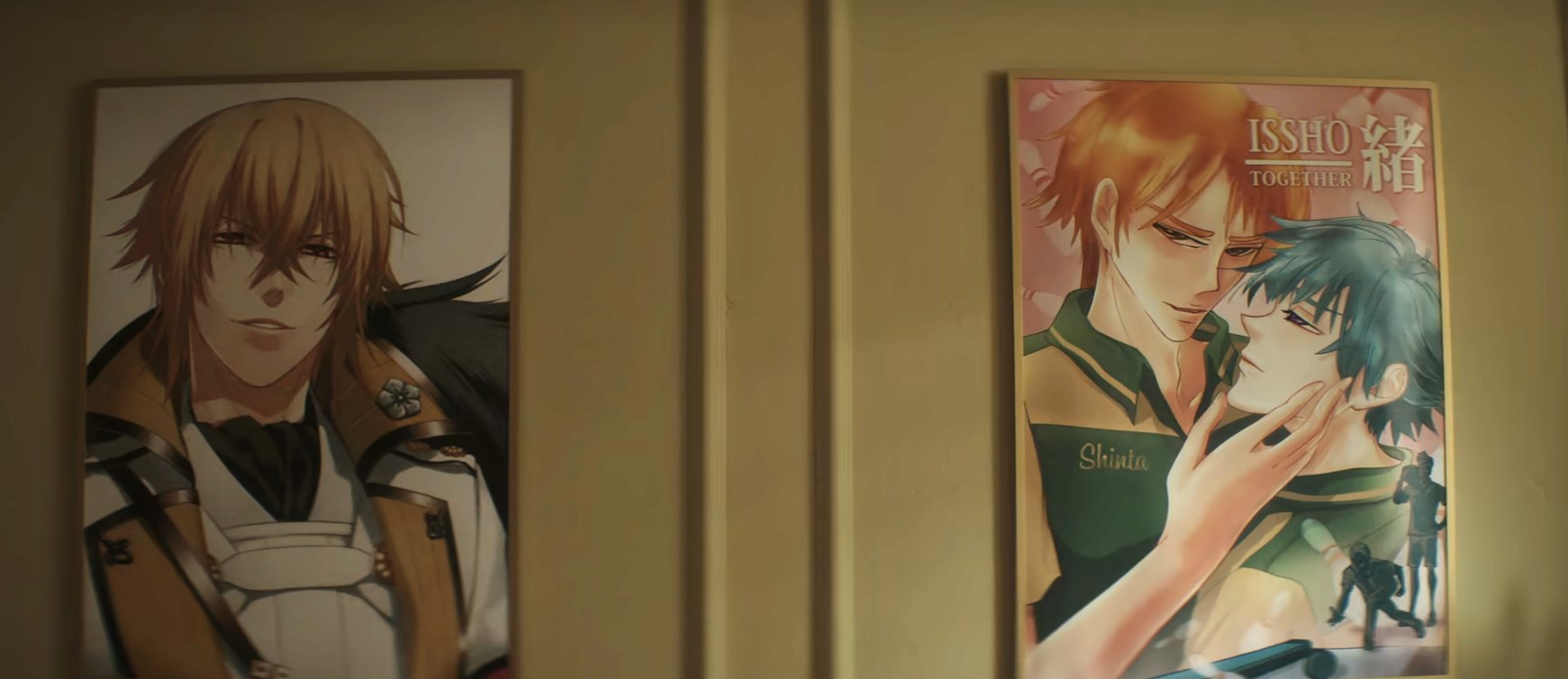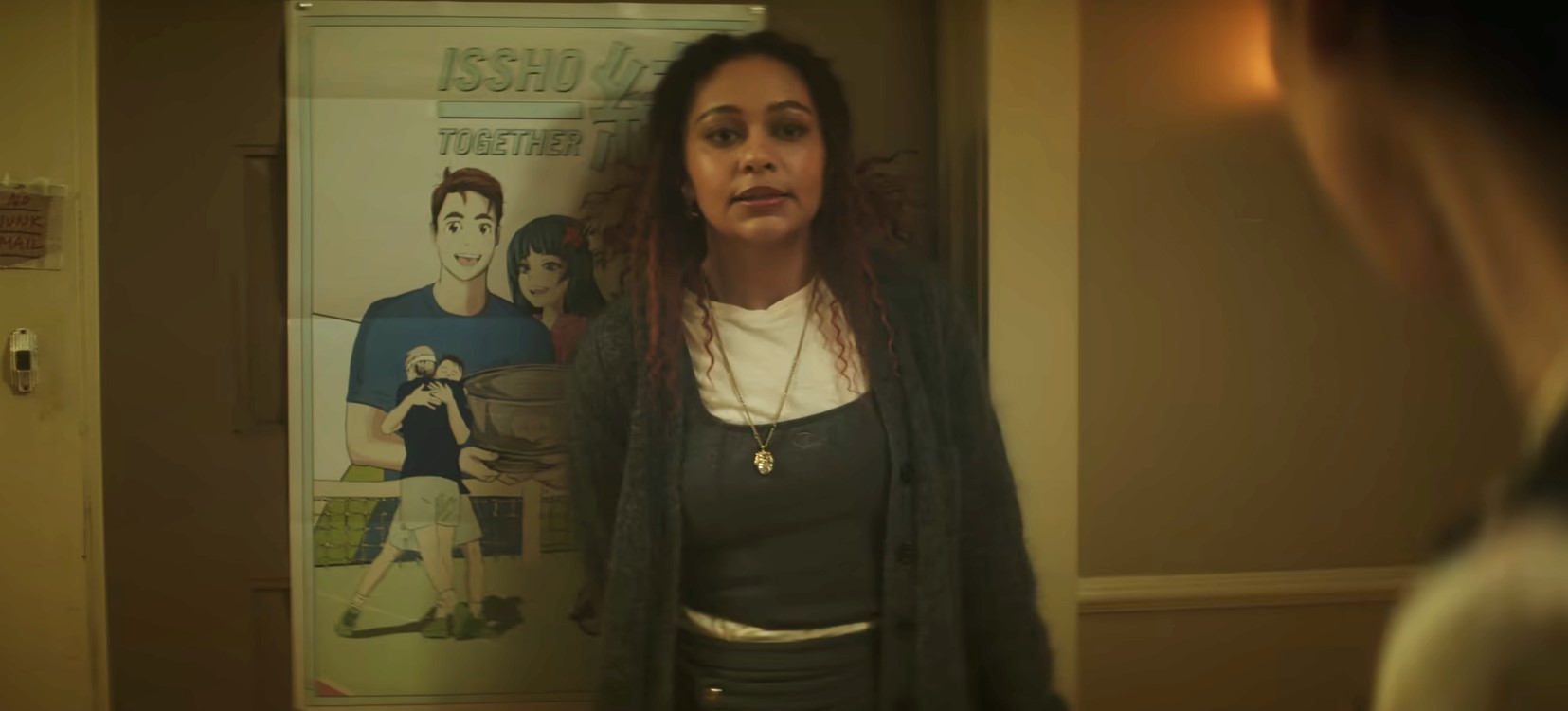In Netflix’s detective comedy series ‘Dead Boy Detectives,’ Niko’s visitors are greeted by a Japanese poster that reads “ISSHO,” which means “together” in English. Her love for manga and anime is evident through the poster for anyone who meets her for the first time. A character’s name is displayed on one of the posters as “Shinta.” As far as the canons of manga and anime are concerned, Shinta is a very popular and frequently used name. However, that isn’t the case with “Issho.” There isn’t a known manga or anime with the same title, leading us to the two posters’ significance!
The Significance of the Issho/Together Poster
Several mangas or animes have characters named Shinta. In ‘Bakuman,’ Shinta Fukuda is an assistant to Eiji Nizuma, one of the main supporting characters. There is Shinta Arakawa in ‘Akane-banashi’ or ‘Akane’s Story.’ Shinta is a citizen of Konohagakure in ‘Naruto,’ one of the best-selling manga series ever. However, none of these characters resemble Shinta who is featured on the poster in ‘Dead Boy Detectives.’ Thus, the posters can be fictional and created exclusively for the supernatural drama show. Since one of the posters indicates that Shinta has a queer romance, it can be connected to Niko and her actions.

In the detective comedy series, Niko is a highly progressive person. Through the posters, it is clear that she values and celebrates queer relationships. When Edwin struggles with his feelings for Charles, Niko encourages him to be honest about the same. As someone who was alive in a highly homophobic period such as the early 20th century, Edwin approaches his sexuality with fear and doubt. However, Niko teaches him that expressing his feelings is absolutely fine. That is also why she encourages Monty when he tries to connect with the detective.
When Jenny deals with her secret admirer, Niko interferes to bring them together. She promotes “togetherness” more than anyone in the show, and her posters indicate her wish to see unions among the people around her. Even though Jenny’s admirer turns out to be a stalker, Niko’s intention to see her landlord find her soulmate cannot be questioned. While her friends are unignorably individualistic, she brings changes to their personalities by promoting a sense of togetherness. Even Edwin transforms into a different person as he promises to meet her after he departs for London. Therefore, the “Issho” posters are windows to Jenny’s personality.
Read More: Dead Boy Detectives: Is Tongue & Tail a Real Butcher Shop?


You must be logged in to post a comment.